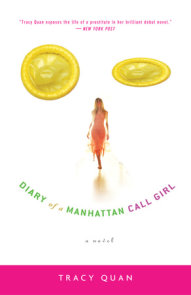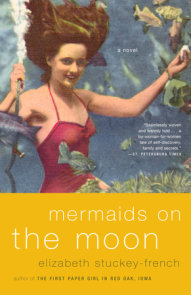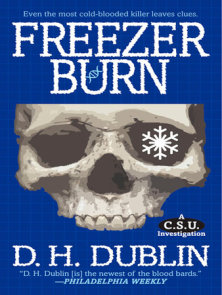TEACHING GUIDE
NOTE TO TEACHERS
1998 YALSA Best Book for Young Adults
1997 Booklist Editors’ Choice for Young Adult
1998 Alex Award from the American Library Association
"An engaging and moving first novel…. Tilden is a gem of a character, navigating all the complexities of adolescent friendships, sibling rivalry and burgeoning sexuality while dealing with her mother’s illness…. An auspicious debut."—Publishers Weekly (starred review)
ABOUT THIS BOOK
In this radiant debut novel, Karin Cook introduces with insight, compassion, and humor the complex life of the family and the pressing concerns of adolescence: the relationship between mother and daughter and between sister and sister; the emotional turmoil surrounding the arrival of a new stepparent; and, finally, the overwhelming heartbreak of loss.
The high-spirited and romantic Frances and her daughters, Tilden and Elizabeth, make up a close, exclusive, and seemingly indestructible family unit. But when Frances meets Nick Olsen, falls in love at first sight, and moves the already nomadic family from Atlanta to Long Island to be with him, the girls are faced with a new father figure, a new home, and a new school. Elizabeth, poised and confident, seems to take everything in her stride, but our watchful, intelligent narrator, Tilden, finds the changes she is going through deeply troubling.
Then Frances discovers a lump in her breast, and the girls find themselves facing not only the normal dilemmas of adolescence—self-esteem, sexuality, identity—but also the potential loss of their adored mother. Frances has always made a policy of glossing over life’s unpleasantness—ugly truths must be kept hidden—so that now the girls find themselves searching the dictionary for words like "benign" and "malignant," struggling to find out what is happening to their lives. As their mother’s physical integrity diminishes, Tilden and Elizabeth must also come to terms with their own changing bodies and burgeoning sexuality, made particularly difficult for Tilden because she must watch her precocious younger sister lead the way in experimenting with boys, makeup, and rebellion.
In What Girls Learn, Karin Cook tells a story of loss and grief that is nevertheless full of hope, humor, and wisdom. She reminds us that what seems secure is never entirely safe, and that growing up means not only learning to love but learning to accept the impermanence of life. This stunning novel is certain to engage the emotions of young readers and to evoke an understanding of the shared difficulties of life, particularly the shared difficulties of adolescence.
ABOUT THIS AUTHOR
Karin Cook lost her own mother to breast cancer when she was nineteen. "I couldn’t not write about my mother’s death," she has said. "It was the biggest event in my life." Cook grew up in Huntington, Long Island, was graduated from Vassar in 1990, and received her M.A. from the Creative Writing Program at New York University in 1992. Since then she has combined two careers, as a writer and a health educator; she currently works in the development office at The Door, a multi-service youth center in New York City. She has received writing fellowships from the MacDowell Colony, the Virginia Center for Creative Arts, and the Millay Colony.
TEACHING IDEAS
The questions, assignments, and discussion topics that follow are designed to guide your students in their approach to What Girls Learn, both as a unique work of literature and as a narrative of adolescence, growth, and loss that they can directly relate to their own lives and experience. The following suggestions should aid class discussion and inspire independent writing and reflection. What Girls Learn is valuable as a way of looking at some of adolescence’s most urgent concerns: issues of self-image and self-esteem, gender roles, personal strength in the face of peer pressure, the emotional turbulence engendered by changing bodies and minds. It is also a wonderful story from which to examine the subject of death and dying, of mourning, and of accepting the end of life.
DISCUSSION AND WRITING
Part One
1. Who, and where, is Tilden and Elizabeth’s father? When did he and Frances split up, and why?
2. "I hated how lonely she was," Tilden says of her mother. [p. 5] In what way is Frances lonely? What is missing from her life?
3. What does Frances promise when she says, "Wait and see?" [p. 6] Does her promise come true? What does Tilden mean when she says "I should have known better than to believe her?" [p. 6]
4. On meeting Nick, Tilden reflects, "I had already decided not to like him." [p. 7] Why had she decided this? Why wouldn’t she want a happy marriage for her mother, and a stable family?
5. When Tilden and Elizabeth argue about whether to go to McDonald’s or Burger King, Nick surprises them by suggesting they do both, "something about his fairness was so staggering that it felt like a new idea." [p. 15] What does this tell us about Nick, and about Tilden’s family?
6. "From an early age we both knew there was some kind of shame in the South…. Mama always said that Southern pride was best kept discreet." [p. 23] What "shame" is Tilden referring to? Why does she think things are going to be different in the North? Do you find the sisters to be particularly "Southern," in any way different from their new Northern friends? What surprises does their new school hold for them?
7. Why does Susie narrow her eyes when Tilden says, about Samantha, "She’s Jewish?" [p. 33]
8. Tilden knew that the Civil War "had more to do with hate and selfishness than ignorance." [p. 34] What does she mean by this? What particular stereotypes does she refer to when she says, "Nobody would talk to me about how stereotypes still existed, especially not Mama?" [p. 34]
9. What sort of tone does Tilden set in her conceited poem? [p. 37] Why does she decide to set this tone rather than the more boastful one she envisions her classmates as using? Why does she think that "it would be more acceptable for them to admit their strengths?" [p. 38]
10. Why does Elizabeth tense up when Frances adds Nick’s name to their family tree? [p. 39] Why wasn’t her father’s name on the tree?
11. Samantha’s conceited poem comes in second; the first prize is won by a boy who promised to be president. [p. 40] Do you think Samantha should have won? Are you surprised that she didn’t?
12. Tilden thinks that she doesn’t like Nick, but reminds herself that "he was okay on his own. What I disliked was how distracted Mama had become, as if there wasn’t room in her for all of us." [p. 50] Do you think that Tilden’s perception is correct—that Frances’s attention is really distracted from her children? What evidence, if any, do you see of this?
Part Two
1. Who is Lila Davenport and what purpose does she serve to Frances? [p. 56] Do you think that Frances has invented Lila Davenport, or is she a real person?
2. Why does Frances decide to let the girls choose their own outfits for the first time? [pp. 59-61] What is special about that particular day? Does it represent a change in their life as a family?
3. What does "euphemism" mean? Why does Cook use it as the title for the chapter beginning on page 63?
4. Why is Mr. McKinney discreet and secretive about the menstruation movie and the books that go with it? [p. 64] Does his attitude add to the girls’ embarrassment?
5. "Your Mama had to have a few tests today," says Nick. [p. 66] What was actually happening to Frances at the hospital? Why didn’t Nick say so? Do you think the decision not to tell the girls the whole truth was Nick’s, or Frances’s?
6. What is Our Bodies, Ourselves? [pp. 82-83] Why is it so important to Tilden and her friends?
7. How does the Shaptaw family differ from Tilden’s family? What is their attitude toward the human body? Do you find their attitude to be better or healthier than that of Frances and Nick?
8. Tilden imagines being Samantha’s sister. [p. 93] In what ways is their relationship different from the relationship between Tilden and Elizabeth?
Part Three
1. Frances’s chemotherapy is administered in a twenty-eight-day cycle, which Tilden keeps track of in a datebook. [p. 111] What other cycle is this reminiscent of?
2. Frances is angry that Mrs. Teuffel is teaching the girls her religious beliefs, but Nick says Mrs. Teuffel is harmless. [p. 113] Which of them do you think is correct? What does this disagreement tell us about Nick’s and Frances’s characters?
3. Why is Frances annoyed by the exercise diagrams Dr. O’Connor gives her? [p. 117]
4. What does Frances mean when she says, "I’m just not going to buy into the commercialization of cancer?" [p. 121]
5. Why does Frances decide to cut her hair into an artichoke cut like the way Tilden did? [pp. 128-29]
6. Why is Frances’s tone so harsh when Elizabeth smells the cut-off rope of her hair? [p. 130]
7. Why is Elizabeth embarrassed when her mother shows up at the swimming pool, and why does she then begin to cry? [p. 139]
8. Why do Elizabeth and Tilden react so differently to the man asking directions who exposes himself? What do their reactions tell us about their characters? [p. 144]
9. When Keith puts his hand on Elizabeth’s knee, why does Elizabeth grin directly at Tilden? [p. 149]
10. As a child, Tilden found Uncle Rand exciting: "He helped us to disobey and laugh off rules." [p. 152] What sort of role does Rand play within the family? What is his relationship with Frances? Why did she kick him out of the house, five years earlier, in Atlanta?
11. How has her parents’ death, and the nature of it, made Frances the sort of person she is? Why is family so important to her?
12. Rand’s chatty way with people "made him appear bolder than I somehow knew he was; I could tell it implied the comfort of familiarity without the work of intimacy." [p. 161] Why might Rand avoid "the work of intimacy"? Why does he avoid work, love, starting a family?
Part Four
1. Why does Samantha name her vagina Jane Eyre, and Tilden name hers Hester Prynne? Who were these two women? [p. 174]
2. "Doing well meant something for me beyond grades. It had something to do with who my friends would be, whether I would be liked, and what kind of girl I would become." [p. 176] Adolescence is a time for creating a self, for deciding what kind of a person to be. What sort of self is Tilden in the process of creating? What about Elizabeth?
3. What is Tilden’s reaction when Uncle Rand comes into her room and touches her at night? [pp. 178-79] Why does she rehearse spelling words in her head?
4. Why does Tilden choose, and insist upon, the Christmas tree that no one else wanted? [pp. 191-92] Is her stubbornness directed specifically toward Rand, and if so, what does it signify?
5. Why is the girls’ reaction to The Nutcracker different this Christmas? [pp. 194-96] Is it because of their mother’s illness, their own growing pains, or both?
6. Why does Rand give Elizabeth, and not Tilden, the change-covered Christmas tree? [pp. 198-99] Why is Tilden angry?
7. What is Tilden’s Christmas present to Frances, and why doesn’t she give it to her?
8. Why is Tilden angry when Nick proposes to Frances at the Christmas party? [pp. 204-205]
9. At her mother’s wedding, Tilden realizes, "this day had never been for Mama. The dress, the ceremony, Grandma’s pearls—all of it was for us, her daughters." [p. 239] Why did the girls need the ceremony so much at this point in their lives? What does it mean to them?
Part Five
1. Why does Jamie Sanders envy Tilden’s family life? [p. 248] In what ways has his father failed him?
2. In what way does Elizabeth’s attitude to, and relationship with, Nick differ from Tilden’s? "He’s practically our father," says Elizabeth; Tilden insists, "He’s not my father." [p. 266] Which of the two girls is wiser? More realistic?
3. When Rand asks the girls whether they can forgive him, Elizabeth says yes, but Tilden says nothing. [p. 290] Why? Do you think that she does, in fact, forgive him eventually? Which emotion is stronger in her, pity or anger?
4. Why does Tilden say, about Samantha, "I hated the simplicity of her suggestions. I didn’t know if I could ever see her again?" [p. 290]
5. What prompts Elizabeth to say, "I never really hated you" [p. 298], and how does this statement change things for Tilden?
SUGGESTED ACTIVITIES
1. Why does Cook use a quotation from Alice Munro, "treachery is the other side of dailiness," as an epigraph for her novel?
2. How would you characterize the chapter titles that Cook uses throughout the novel? How do these titles comment on what is in the chapters themselves? Does the tone of the titles strike you as ironic?
3. Frances teaches her children that "good intentions could justify almost anything, even white lies." [p. 3] Do you think that she was right to try to instill this value? How does this principle affect the way the girls experience her illness and death? Do you believe, with Tilden, that "silence was just another way to tell a lie?" [p. 61]
4. The book addresses a number of difficult issues for adolescents. Looking specifically at the scene concerning the menstruation movie [pp. 63-64], discuss how Karin Cook addresses the issue. What techniques does she use to diffuse the sensitive issue? Is humor one of the techniques she uses? Where else in the book does she use humor as a means of a discussing difficult topics?
5. Do you believe that Frances was a good mother? What important gifts did she give her daughters? In what ways, if any, did she fail them?
6. Nick is a model stepfather, but Tilden never really gets close to him or comes to love him wholeheartedly. Why not? What do you think about Nick? Do you think that he has earned the girls’ trust and love?
7. In what ways are Tilden and Elizabeth essentially different? "Elizabeth used every move as an opportunity to become someone else…. I was always the same," says Tilden. [p. 12] As you read the book, did you find this observation to be true? In what ways are Tilden and Elizabeth similar? Why does their relationship continue to be close, in spite of all their differences?
8. "Siblings," Karin Cook has said in an interview, "can split up feelings and reactions and polarize in the face of anything, especially in the face of illness and death." How do Elizabeth and Tilden illustrate this principle? In what ways do they polarize?
9. "For some reason I found myself picturing the sketches in the menstruation book, a girl inside a girl inside a girl, each growing taller, her chest and hips swelling. The drawing showed the different sizes of breasts, like lumps, pushing out from under her arms in broken lines, like a paper doll." [p. 69] How does Cook contrast the process of adolescent development with the process of illness and death? What does it mean to Tilden that she has begun to associate growing breasts with cancerous lumps?
10. The lower-grade girls tease Tilden and her friends about the menstruation movie: "They spit out the names of each private part as if it were a dirty word." [p. 87] Why do you think these girls feel such shame in their developing bodies? Do you think this shame is peculiar to adolescents, or is it an integral part of our culture? Why do people consider body parts to be obscene?
11. Tilden and Elizabeth find a box of Nick’s old Playboy magazines and read them. "My skin chilled, sending goosebumps up my arms. There was so much we didn’t know about Nick," Tilden thinks. [p. 104] Why does Tilden think that Nick’s interest in Playboy is disgusting? Do you think that men and women have different attitudes to, and reactions to, pornography? Why might this be so?
12. Tilden and Elizabeth have spent most of their life without a father; they are very close to their mother, but have few close friends, because of all the moving around they have done. Do you find that they are unusually unfamiliar with men and boys? Might their discomfort with Nick spring from the fact that, as a man, he is fundamentally strange to them?
13. Do you think that Frances and Nick were wrong not to wait until the end before telling the girls that Frances would not live? If you were in Tilden’s position, would you rather have known the truth all along? If you were in Frances’s position, what would you have done? Is the truth always a good thing?
14. "Mama said that focusing on beauty would distract us from what really mattered…. On the surface striking might seem like the best kind of beauty, but really, it prevents understanding.’" [p. 127] Do you agree with her? How does this opinion reflect upon her own decision to buy a wig and go along with the beauty treatments she received as Christmas gifts?
15. When her mother is ill, Tilden reflects that she feels "a strange mix of anger at how fragile she was and an insistent desire to protect her." [p. 149] Do you find that, in some ways, Tilden has taken on the role of caregiver and Frances of child?
16. It is easy to castigate Uncle Rand, but do you find him in any way sympathetic? Why might he have become the sort of person he is? What emotional needs is he looking for Tilden to fulfill for him?
17. Why doesn’t Frances ever tell the girls about their real father, and why don’t they ask her about him, even when they know she is dying?
BEYOND THE BOOK
1. Karin Cook has pointed out that "The two images that a woman has to reflect her body against growing up are the extreme sexualized images of women put up on billboards and the shower cards hanging in the bathroom that say you have to look for something wrong. What a frightening way to come into your body." What effect has the proliferation of sexualized images of women in advertising had upon your own body image (if you are a girl) or your ideas about girls and women (if you are a boy)? Collect ten of these images and bring them to class. Show them to the other students and ask for their responses. How, in your opinion, have such images affected not only people’s body images, but our culture as a whole?
2. Frances feels that she has to work on her own death: "Mama was ready to begin the work of her dying." [p. 269] This is a process that was important to Frances, and became important to Tilden. What do you think about this "work of dying," the process of emotional acceptance of the fact of death? Why do you think it is so important? Do you think it is important for everyone? Would you want to go through this process for your own death, or would you rather die suddenly and painlessly in your sleep?
3. Frances, like Karin Cook’s own mother, chose not to tell her children that she was dying until the end was almost upon her. Write two letters: one from Tilden to Frances, explaining her wish for more knowledge; one from Frances to her daughters, explaining why she chose to keep so much of her illness hidden. Be as detailed as possible.
4. Karin Cook is now a health educator specializing in women’s issues as well as a writer. How might her mother’s death have affected her choice of career? What event or events in your own life have had a powerful enough affect on you to influence what you decide to do with your life? Write a short essay on this subject.
5. Tilden finds that there is a great deal of secretiveness around the two topics that are of the most immediate interest to her: the changes that are occurring in her own body, and those that are occurring in her mother’s. Why should these subjects be forbidden territory? Does fear enter into it? Shame? What other aspects of our world are shrouded in mystery? Write a short essay in which you discuss an issue about which you find people to be dishonest or secretive. What are the reasons for this dishonesty?
OTHER TITLES OF INTEREST
The Boston Women’s Health Book Collective, The New Our Bodies, Ourselves; Ruth Bell, Changing Bodies, Changing Lives; James Agee, A Death in the Family; Amy Bloom, Love Invents Us; Lorene Cary, Black Ice; Jill Ker Conway, The Road From Coorain; Lynn Freed, Home Ground; Kaye Gibbons, Ellen Foster; Jamaica Kincaid, Annie John; William Maxwell, So Long, See You Tomorrow; Carson McCullers, The Heart Is a Lonely Hunter, The Member of the Wedding; Marilynne Robinson, Housekeeping; J. D. Salinger, The Catcher in the Rye; Esmeralda Santiago, When I Was Puerto Rican; Sapphire, Push; Mark Twain, Huckleberry Finn.
ABOUT THIS GUIDE
This teacher’s guide was written by Brooke Allen. Brooke Allen has a Ph.D. in literature from Columbia University, and has spent several years in France as a teacher and a journalist. She writes regularly on books for The New Criterion, The Wall Street Journal, and other publications.
COPYRIGHT
Copyright © 1998 by VINTAGE BOOKS
×
Become a Member
Just for joining you’ll get personalized recommendations on your dashboard daily and features only for members.
Find Out More Join Now Sign In



















